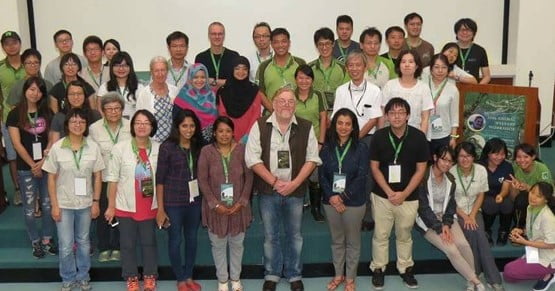Welfare and Audit Essentials in Taiwan
Wild Welfare recently returned from Taiwan, where field director, Dave Morgan, was training the next generation of veterinary surgeons and veterinary healthcare specialists in key animal welfare principles.
Nearly 40 first year veterinary students from the National Taiwan University’s School of Veterinary Medicine in Taipei, attended a presentation entitled ‘general principles of zoo animal welfare’. Central to the presentation was an introduction to the Mellor Five Domains. The Five Domains Model illustrates how compromises in an animal’s nutrition, environment, health and behaviour can all impact upon its mental state, and it serves as a useful framework for the broad assessment of animal welfare.
Mr Morgan said: “The introduction of Mellor’s Domains induced some searching questions from the audience, for who the notion of affective states in animals was a new concept. There were however, some very encouraging responses.”
Wild Welfare also gave a four-hour workshop on zoo animal welfare auditing and assessments, at Taipei Zoo. A total of 40 veterinary healthcare specialists from all over south-east Asia attended the workshop. The main focus was on gaining an insight into the requirements of an auditor and how to conduct a zoo assessment against a standard, using Wild Welfare methodology and documentation.
“It’s extremely rewarding to be a part of these workshops and bring our organisation’s welfare approaches to new and engaged animal healthcare professionals,” Mr Morgan said.
Part of the workshop saw attendees using sections of the Wild Welfare audit checklist in the Formosan Animal Area of the Zoo. This area features Taiwan’s indigenous animals, such as the Asiatic black bear and Chinese pangolin.
Mr Morgan added: “The audit exercise, usually carried out within the zoo where we’re presenting, demonstrates time and time again how robust Wild Welfare’s assessment method is, and consequently how essential it is in helping to ensure good welfare standards within captive animal collections.”
The workshop formed part of the line-up for the 9th Conference of the Asian Society of Conservation Medicine, being hosted by Taipei Zoo.





